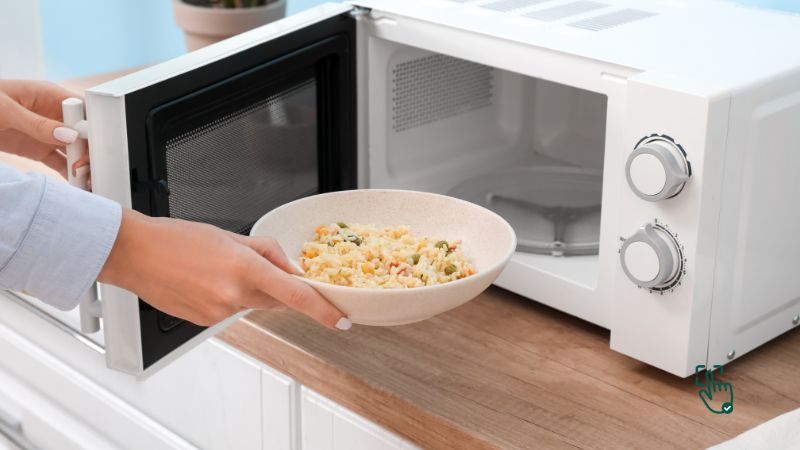
A microwave might just be the hardest-working appliance in your kitchen! From reheating leftovers to cooking popcorn in minutes, the right microwave can make life easier, tastier, and faster. But with so many options on the market, which one is truly the best microwaves? Whether you need something compact, powerful, or packed with features, I’ve got you covered!
What’s the Hype About Microwaves?
Microwaves use electromagnetic waves to heat up food quickly, making them a must-have for busy households. They’re energy-efficient, incredibly convenient, and can even preserve more nutrients in food compared to some other cooking methods. But not all microwaves are created equal—some excel at precise cooking, while others are better for basic reheating.
Best Microwaves for Every Need
- Panasonic NN-SN966S Microwave Oven
- Pros: Powerful, large capacity, advanced inverter technology.Cons: Pricey and slightly bulky for small kitchens.
- Toshiba EM131A5C-BS Microwave Oven
- Pros: Affordable, great for everyday tasks, and compact.Cons: Limited features and no inverter technology.
- Breville BMO850BSS1BUC1 the Smooth Wave Countertop Microwave
- Pros: Smart cooking features, sleek design, and quiet operation.Cons: Expensive, limited capacity.
- GE Profile PEB9159SJSS Countertop Convection/Microwave Oven
- Pros: Convection capabilities, great for baking and roasting, spacious.Cons: Heavier and takes longer to heat compared to basic models.
How to Choose the Best Microwave for You
- Size and Space
- Are you looking for a compact microwave for a small kitchen, or do you need something larger for family-sized portions? Microwave sizes range from small (0.7 cubic feet) to large (2.2 cubic feet or more), so measure your available counter or cabinet space before buying.
- Wattage Power
- Microwaves with 700 watts or more are good for fast cooking. Anything below that might leave you waiting for longer cooking times, while 1000 watts and above usually provide fast, even heating.
- Cooking Technology
- For even heating and precise cooking, models with inverter technology (like some Panasonic models) prevent food from getting rubbery or overcooked. Some microwaves also come with smart sensor technology to adjust power levels automatically, ensuring your food heats perfectly every time.
- Type of Microwave
- Countertop Microwaves are the most common and can be placed anywhere with an outlet.
- Over-the-Range Microwaves save counter space and double as range hoods, which is great for smaller kitchens.
- Built-in Microwaves integrate seamlessly into cabinetry for a modern look but require professional installation.
Where to Buy the Best Microwaves?
Major retailers like Amazon, Best Buy, and Walmart are great spots to pick up a microwave with solid return policies and warranties. If you’re keen on a premium model, check out department stores or even specialty appliance stores for more high-end options. And don’t forget to keep an eye on big sales events like Black Friday for significant savings.
Top Reasons People Love Microwaves: Here’s Why They’re Worth It
- Speed: Microwaves heat food in minutes. No other appliance can turn frozen food to steaming hot so quickly.
- Energy Efficiency: Compared to an oven, microwaves consume way less power, which is a plus for eco-conscious households.
- Versatility: Some microwaves can cook, grill, bake, and even steam food, making them far more than just reheating machines.
What About the Downsides? Honest Microwave Reviews
Let’s be real, though. Microwaves aren’t perfect. Here’s where they can fall short:
- Hot Spots & Uneven Heating: Some models, especially lower-end microwaves, can struggle with evenly heating food. You may end up with cold spots, meaning you’ll have to stir or reposition your meal halfway through cooking.
- Size Issues: Not every microwave is designed to fit large dinner plates, so double-check your preferred model’s interior dimensions to ensure your favorite dishes fit.
- Noise Levels: While some high-end models run quietly, others can be loud enough to disturb a peaceful kitchen, especially during longer cook cycles.
If any of these drawbacks seem like deal-breakers, consider investing in a microwave with advanced heating technology or a more compact design.
Microwave FAQs: What You Need to Know
Q: Are microwaves safe to use?
Yes, microwaves are designed with safety in mind. They use non-ionizing radiation, which means there’s no risk of harmful rays affecting your food or health. Just avoid standing directly in front of one while it’s running.
Q: Can I put metal in a microwave?
No! Metal reflects microwaves, which can cause sparks, damage to your microwave, or even a fire. Stick to microwave-safe containers like glass or certain plastics.
Q: What foods shouldn’t be microwaved?
Avoid heating things like whole eggs (they can explode!), certain plastics, or foods with low moisture content, as they can overheat or burn.
Conclusion
Which Microwave Is Right for You?
If you’re looking for a quick-and-easy, no-fuss option, the Toshiba EM131A5C-BS is a solid choice for everyday needs. For those who want more advanced cooking features, the Breville Smooth Wave and GE Profile Convection Microwave are fantastic, albeit pricier, options.



